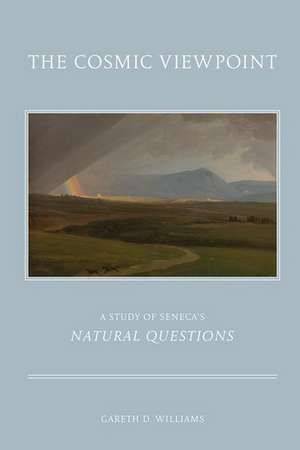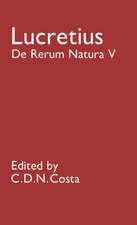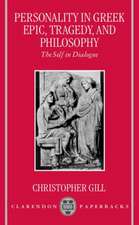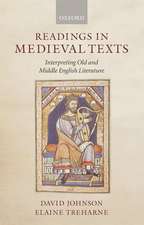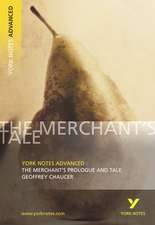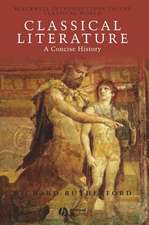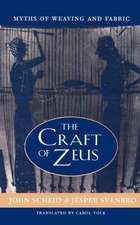The Cosmic Viewpoint: A Study of Seneca's Natural Questions
Autor Gareth D. Williamsen Limba Engleză Paperback – 12 mai 2016
| Toate formatele și edițiile | Preț | Express |
|---|---|---|
| Paperback (1) | 283.10 lei 31-38 zile | |
| Oxford University Press – 12 mai 2016 | 283.10 lei 31-38 zile | |
| Hardback (1) | 386.34 lei 31-38 zile | |
| Oxford University Press – 19 apr 2012 | 386.34 lei 31-38 zile |
Preț: 283.10 lei
Preț vechi: 350.01 lei
-19% Nou
Puncte Express: 425
Preț estimativ în valută:
54.17€ • 56.76$ • 44.78£
54.17€ • 56.76$ • 44.78£
Carte tipărită la comandă
Livrare economică 31 martie-07 aprilie
Preluare comenzi: 021 569.72.76
Specificații
ISBN-13: 9780190490980
ISBN-10: 0190490985
Pagini: 410
Dimensiuni: 155 x 231 x 25 mm
Greutate: 0.54 kg
Editura: Oxford University Press
Colecția OUP USA
Locul publicării:New York, United States
ISBN-10: 0190490985
Pagini: 410
Dimensiuni: 155 x 231 x 25 mm
Greutate: 0.54 kg
Editura: Oxford University Press
Colecția OUP USA
Locul publicării:New York, United States
Recenzii
Williams's exemplary, learned study of Natural Questions, Seneca's rarely read treatise on meteorology complements Harry Hine's translation of this work (2010).... Although the author offers a wealth of insight into Seneca's use of sources, Williams's acumen as a close reader carefully attuned to the rhetorical and literary dimensions of Natural Questions stands out. Highly recommended.
Sorting styles of reasoning, The Cosmic Viewpoint pilots through joined-up power-thinking from Rome's sharpest, pushiest, writer. Now we can read Seneca on the ecosphere: how-and-why we should try our damnedest to figure out how planet Earth works.
In this subtle and perceptive study, Gareth Williams shows how in the Natural Questions Seneca transformed the genre of meteorological writing in a highly creative way, offering a holistic Stoic vision of the cosmos, where in wrestling to understand the physical world we must also wrestle with our human nature.
Offers an extremely convincing articulation of [Naturales Quaestiones's] moral prefaces and interludes with the strictly technical sections of the book.
Sorting styles of reasoning, The Cosmic Viewpoint pilots through joined-up power-thinking from Rome's sharpest, pushiest, writer. Now we can read Seneca on the ecosphere: how-and-why we should try our damnedest to figure out how planet Earth works.
In this subtle and perceptive study, Gareth Williams shows how in the Natural Questions Seneca transformed the genre of meteorological writing in a highly creative way, offering a holistic Stoic vision of the cosmos, where in wrestling to understand the physical world we must also wrestle with our human nature.
Offers an extremely convincing articulation of [Naturales Quaestiones's] moral prefaces and interludes with the strictly technical sections of the book.
Notă biografică
Gareth D. Williams is Violin Family Professor of Classics at Columbia University. His most recent book, co-edited with Katharina Volk, is Roman Reflections.
